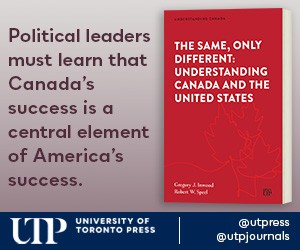The Supreme Court today in a 6-3 decision ruled the federal carbon tax is lawful. The Court dismissed constitutional challenges by Alberta, Saskatchewan and Ontario.
“Climate change is real,” wrote Chief Justice Richard Wagner. “It is caused by greenhouse gas emissions resulting from human activities, and it poses a grave threat to humanity’s future. The only way to address the threat of climate change is to reduce greenhouse gas emissions.”
Justice Wagner said since climate change “has no boundaries” Parliament was within its rights in passing the 2018 Greenhouse Gas Pollution Pricing Act. The original Act capped the federal carbon tax at $50 per tonne, the equivalent of 12¢ per litre of gasoline.
“All it does is to require persons to pay for engaging in specific activities that result in the emission of greenhouse gases,” wrote Justice Wagner. “The Act leaves individual consumers and businesses free to choose how they will respond, or not, to the price signals.”
However three judges in dissenting opinions wrote the Act was a clear intrusion in provincial powers, and granted cabinet unprecedented powers to raise the tax at any time. “When an Act endows a select few with the power to rewrite, and thus re-engineer, a law which affects virtually every aspect of individuals’ daily lives and provincial industrial, economic and municipal activities, it goes too far,” wrote Justice Suzanne Côté of Québec.
“The Act as it is currently written employs a discretionary scheme that knows no bounds,” wrote Justice Côté.
Cabinet last December 11 announced it would use its powers under the Act to raise the carbon tax 240 percent to $170 per tonne by 2030. The higher charge is the equivalent of an extra 27¢ per litre of propane, 34¢ more per cubic metre of natural gas, 40¢ more per litre of gasoline, 44¢ for aviation fuel and an extra 47¢ per litre for diesel.
Justice Russell Brown of British Columbia in a dissenting opinion called the Act “a deep foray into industrial policy that falls within matters of provincial legislative authority,” while Justice Malcolm Rowe of Newfoundland and Labrador cautioned: “It is no simple matter to tinker with the Constitution.”
“The importance of the matter has nothing to do with whether it is a matter of national concern,” wrote Justice Rowe. Provinces regulate property rights, not Parliament, he wrote.
“The goal of the financial charges, ‘just paying money,’ is to influence behaviour, in this case both consumer and industrial,” wrote Justice Rowe. “The point is that ‘just paying money’ hardly captures the intended impact of the Act, let alone its potential impact.”
By Staff 







